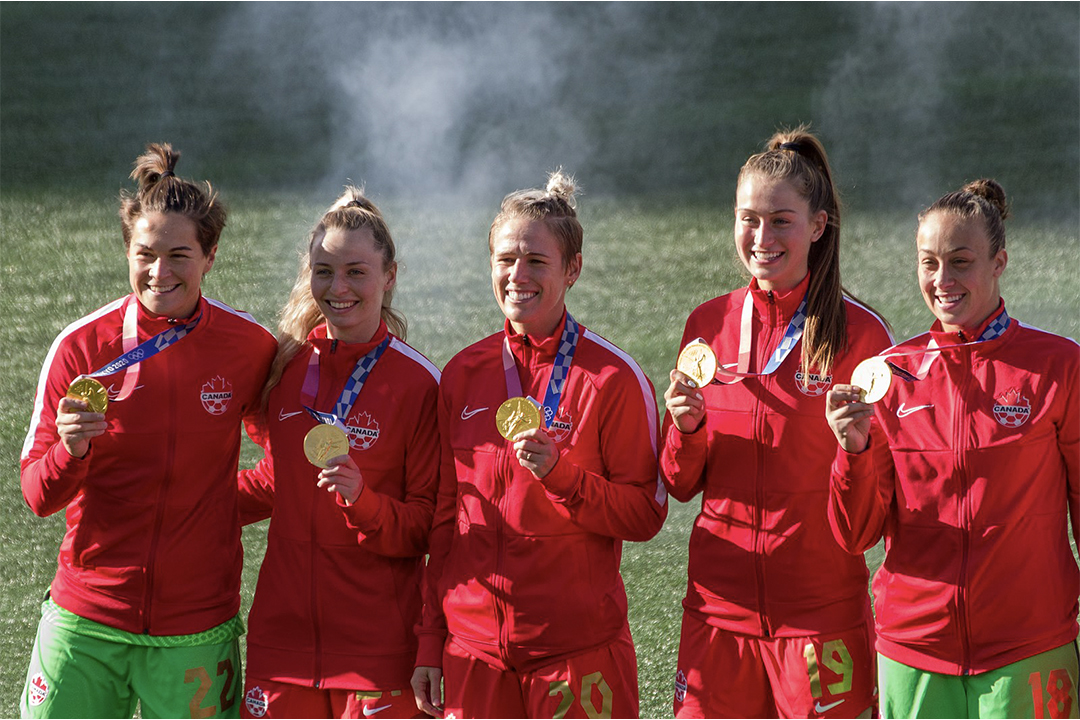After a nail-biting final in the most recent men’s World Cup, soccer fans around the globe are getting ready for the women’s tournament. The ninth FIFA Women’s World Cup began on July 20 across stadiums in Australia and New Zealand and marks the first year that 32 countries — rather than 24 — will participate.
Canada’s group
Some have called the group in which Canada will be competing in at the World Cup, which includes Nigeria, Australia, and the Republic of Ireland, “the group of death,” a term fútbol aficionados will recognize as indicative of Group B’s highly competitive nature and the uncertainty of which teams will advance onto the next round.
This may come as a surprise by merely looking at FIFA’s Women’s Rankings, which places Canada at number 7, Australia at number 10, Ireland at number 22 and Nigeria at number 40. Therefore, those labelling Group B as the “group of death” may be looking at friendly matches from 2022, when Ireland showed a strong performance against the United States — a team that has consistently defeated Canada, both in the SheBelieves Cup earlier this year and at the CONCACAF Women’s Championship final last summer. Additionally, Canada tied against Nigeria last year, and their star player Asishat Oshaola has been named by TIME as one of the players to watch this World Cup after her outstanding season with Barcelona Femeni.
Despite these preoccupations, Canada defeated Australia twice last year in several friendly matches, and even though their match with Nigeria last year was a draw, they earlier beat the country with a 2–0 final score. Yet Canada’s first game of the World Cup against Nigeria ended in a goaless draw. Furthermore, the fact remains that Australia is still one of the top 10 teams in the world, and at the World Cup will have home advantage and countless fans in their stadiums.
With all of this on the table, Australia and Canada can still be favoured to escape the “group of death.” If Canada makes it that far, the real challenge will be beating the United States, who have won the last two World Cups and are ranked the top team in the world.
Sinclair’s sixth World Cup
Canada will be led by the national team’s forward and captain Christine Sinclair, who recently shared her expectations for the tournament in an interview with CBC Sports, saying, “We’re going there to win it.” Sinclair, now 40 years old, made her World Cup debut in 2003 and currently holds the international scoring record — over both men and women — with 190 goals.
At her first World Cup in 2003, Sinclair scored three goals for Canada, landing them fourth place overall in the tournament — the highest finish for Canada so far. Since then, Canada has advanced to the knockout stages three times.
While all eyes are on Sinclair to lead the team to victory, one player cannot win the game alone. Yet, at the 2020 Tokyo Olympics, Sinclair could not participate in the decisive penalty kicks, and the team still rose to the occasion. Canada does not seem to be at risk of putting their fate in the hands of their star player, especially with Head Coach Bev Priestman’s emphasis on defensive strategy.
However, fans who read Canada’s victory at the 2020 Olympics as a precursor for a World Cup victory should also consider how this has made them ‘the team to beat’ going into the tournament.
Furthermore, the Olympics and the World Cup are incomparable in many ways, bringing into question the legitimacy of using Canada’s Olympics victory as a reliable predictor for the team’s performance this summer. In a recent conversation with Soccer North, Amy Walsh — who formerly represented Canada in both the Olympics and the World Cup — explained the Olympics are more of a “sprint” and the World Cup is more of a “marathon” in all aspects: time between games, mental focus, and the field itself. Walsh explains how Sinclair equated Canada’s gold medal win at the Olympics to making it to the quarterfinals of the World Cup.
The team
Based on Canada Soccer’s official World Cup roster, the team will include a mix of young and veteran players, with a range from players making their first debut in the tournament to long-time favourite Sophie Schmidt making her final international appearance. Notably, star player Janine Beckie is out after tearing her anterior cruciate ligament (ACL) earlier this year.
Along with Sinclair, Julia Grosso is another Canadian player to watch this World Cup. At the 2020 Olympics, Grosso scored the winning goal in the penalties against Sweden and secured Canada’s gold medal, while she was still playing for the University of Texas. Soon after, Juventus quickly signed her as a midfielder, where she played a crucial role in helping them win the gold trophy at Coppa Italia, Serie A, and SuperCoppa.
Overall, this tournament will certainly be one for the books. Canada kicked off its eighth World Cup on July 21 against Nigeria. Given the team’s previous performances, our bets are on Canada making it to the knockouts. With all the uncertainty for Canada and the rest of the teams, we’re counting on all of you out there to wish our players the best of luck in the tournament!



No comments to display.